
How Artificial Intelligence is Transforming Software Development
Last updated: July 10, 2025 Read in fullscreen view
- 15 Feb 2024
 What is a Cut-Over in Software Development? 69/1318
What is a Cut-Over in Software Development? 69/1318 - 05 Oct 2025
 The New Facebook Algorithm: A Paradigm Shift in Content Discovery 66/109
The New Facebook Algorithm: A Paradigm Shift in Content Discovery 66/109 - 02 Nov 2023
 Differences between software walkthrough, review, and inspection 54/2112
Differences between software walkthrough, review, and inspection 54/2112 - 10 Apr 2022
 Agile self-organizing teams: What are they? How do they work? 51/535
Agile self-organizing teams: What are they? How do they work? 51/535 - 06 Dec 2025
 Enterprise Operations 2.0: Why AI Agents Are Replacing Traditional Automation 50/85
Enterprise Operations 2.0: Why AI Agents Are Replacing Traditional Automation 50/85 - 23 Dec 2025
 Microsoft Power Automate vs. n8n: What’s the Real Difference? 47/77
Microsoft Power Automate vs. n8n: What’s the Real Difference? 47/77 - 25 Nov 2025
 How AI Agents Are Redefining Enterprise Automation and Decision-Making 46/96
How AI Agents Are Redefining Enterprise Automation and Decision-Making 46/96 - 06 Nov 2025
 Top 10 AI Development Companies in the USA to Watch in 2026 41/90
Top 10 AI Development Companies in the USA to Watch in 2026 41/90 - 13 Oct 2021
 Outsourcing Software Development: MVP, Proof of Concept (POC) and Prototyping. Which is better? 40/486
Outsourcing Software Development: MVP, Proof of Concept (POC) and Prototyping. Which is better? 40/486 - 01 Jul 2025
 The Hidden Costs of Not Adopting AI Agents: Risk of Falling Behind 38/164
The Hidden Costs of Not Adopting AI Agents: Risk of Falling Behind 38/164 - 03 Oct 2025
 Top CMS Trends 2026: The Future of Digital Content Management 38/56
Top CMS Trends 2026: The Future of Digital Content Management 38/56 - 02 Dec 2025
 The Question That Shook Asia: What Happens When We Ask AI to Choose Between a Mother and a Wife? 37/63
The Question That Shook Asia: What Happens When We Ask AI to Choose Between a Mother and a Wife? 37/63 - 20 Dec 2025
 The Future of IT Consulting: Key Trends for 2026–2030 35/67
The Future of IT Consulting: Key Trends for 2026–2030 35/67 - 22 Dec 2025
 The Role of Automotive Software in Building Smarter Vehicles 35/59
The Role of Automotive Software in Building Smarter Vehicles 35/59 - 21 May 2022
 "Fail Fast, Fail Often, Fail Forward" is the answer to Agile practices of software success 34/1027
"Fail Fast, Fail Often, Fail Forward" is the answer to Agile practices of software success 34/1027 - 12 Oct 2022
 14 Common Reasons Software Projects Fail (And How To Avoid Them) 32/568
14 Common Reasons Software Projects Fail (And How To Avoid Them) 32/568 - 27 Oct 2020
 8 principles of Agile Testing 31/1309
8 principles of Agile Testing 31/1309 - 03 Nov 2023
 Why Is Billable Viable Product An Alternative To Minimum Viable Product? 31/200
Why Is Billable Viable Product An Alternative To Minimum Viable Product? 31/200 - 16 Oct 2025
 AI Inference Explained Simply: What Developers Really Need to Know 30/58
AI Inference Explained Simply: What Developers Really Need to Know 30/58 - 28 Nov 2025
 How AI Will Transform Vendor Onboarding and Seller Management in 2026 30/82
How AI Will Transform Vendor Onboarding and Seller Management in 2026 30/82 - 19 Oct 2021
 Software development life cycles 29/701
Software development life cycles 29/701 - 02 Oct 2022
 The Real Factors Behind Bill Gates’ Success: Luck, Skills, or Connections? 28/361
The Real Factors Behind Bill Gates’ Success: Luck, Skills, or Connections? 28/361 - 16 Dec 2025
 Reducing Cognitive Friction in Software Development: A Guide to Faster, Happier Teams 28/77
Reducing Cognitive Friction in Software Development: A Guide to Faster, Happier Teams 28/77 - 10 Sep 2024
 Leading Remote Teams in Hybrid Work Environments 27/160
Leading Remote Teams in Hybrid Work Environments 27/160 - 05 Jun 2025
 How AI-Driven Computer Vision Is Changing the Face of Retail Analytics 26/135
How AI-Driven Computer Vision Is Changing the Face of Retail Analytics 26/135 - 07 Nov 2025
 Online vs. Offline Machine Learning Courses in South Africa: Which One Should You Pick? 25/70
Online vs. Offline Machine Learning Courses in South Africa: Which One Should You Pick? 25/70 - 14 Aug 2024
 From Steel to Software: The Reluctant Evolution of Japan's Tech Corporates 24/545
From Steel to Software: The Reluctant Evolution of Japan's Tech Corporates 24/545 - 25 Dec 2025
 What Is Algorithmic Fairness? Who Determines the Value of Content: Humans or Algorithms? 23/47
What Is Algorithmic Fairness? Who Determines the Value of Content: Humans or Algorithms? 23/47 - 23 Dec 2024
 Garbage In, Megabytes Out (GIMO): How to Rise Above AI Slop and Create Real Signal 23/60
Garbage In, Megabytes Out (GIMO): How to Rise Above AI Slop and Create Real Signal 23/60 - 31 Dec 2025
 10 Skills to Make You "Irreplaceable" in the Next 3 Years (even if AI changes everything) 22/34
10 Skills to Make You "Irreplaceable" in the Next 3 Years (even if AI changes everything) 22/34 - 21 Nov 2025
 The Rise of AgentOps: How Enterprises Are Managing and Scaling AI Agents 22/69
The Rise of AgentOps: How Enterprises Are Managing and Scaling AI Agents 22/69 - 11 Oct 2022
 Why choose Billable Viable Product (BVP) over Minimum Viable Product (MVP) 22/361
Why choose Billable Viable Product (BVP) over Minimum Viable Product (MVP) 22/361 - 12 Oct 2020
 The Agile Manifesto - Principle #8 20/496
The Agile Manifesto - Principle #8 20/496 - 24 Dec 2024
 Artificial Intelligence and Cybersecurity: Building Trust in EFL Tutoring 20/180
Artificial Intelligence and Cybersecurity: Building Trust in EFL Tutoring 20/180 - 03 Jul 2022
 Manifesto for Agile Software Development 18/276
Manifesto for Agile Software Development 18/276 - 09 Jul 2024
 What Is Artificial Intelligence and How Is It Used Today? 18/243
What Is Artificial Intelligence and How Is It Used Today? 18/243 - 21 Dec 2023
 Top 12 Low-Code Platforms To Use in 2024 18/1248
Top 12 Low-Code Platforms To Use in 2024 18/1248 - 23 Jun 2025
 AI Avatars in the Metaverse: How Digital Beings Are Redefining Identity and Social Interaction 18/125
AI Avatars in the Metaverse: How Digital Beings Are Redefining Identity and Social Interaction 18/125 - 12 Jan 2026
 Companies Developing Custom AI Models for Brand Creative: Market Landscape and Use Cases 18/29
Companies Developing Custom AI Models for Brand Creative: Market Landscape and Use Cases 18/29 - 07 Oct 2025
 Case Study: Using the “Messaging House” Framework to Build a Digital Transformation Roadmap 17/86
Case Study: Using the “Messaging House” Framework to Build a Digital Transformation Roadmap 17/86 - 04 Oct 2021
 Product Validation: The Key to Developing the Best Product Possible 17/320
Product Validation: The Key to Developing the Best Product Possible 17/320 - 18 Aug 2024
 The Future of Web Development: Emerging Trends and Technologies Every Developer Should Know 17/201
The Future of Web Development: Emerging Trends and Technologies Every Developer Should Know 17/201 - 05 Sep 2023
 The Cold Start Problem: How to Start and Scale Network Effects 17/203
The Cold Start Problem: How to Start and Scale Network Effects 17/203 - 29 Oct 2024
 Top AI Tools and Frameworks You’ll Master in an Artificial Intelligence Course 17/385
Top AI Tools and Frameworks You’ll Master in an Artificial Intelligence Course 17/385 - 22 Nov 2024
 The Role of AI in Enhancing Business Efficiency and Decision-Making 17/196
The Role of AI in Enhancing Business Efficiency and Decision-Making 17/196 - 20 Feb 2025
 How Machine Learning is Shaping the Future of Digital Advertising 16/123
How Machine Learning is Shaping the Future of Digital Advertising 16/123 - 01 Feb 2024
 How long does it take to develop software? 16/224
How long does it take to develop software? 16/224 - 05 Mar 2021
 How do you minimize risks when you outsource software development? 16/336
How do you minimize risks when you outsource software development? 16/336 - 31 Aug 2022
 What are the best practices for software contract negotiations? 16/260
What are the best practices for software contract negotiations? 16/260 - 31 Dec 2022
 The New Normal for Software Development 15/364
The New Normal for Software Development 15/364 - 18 Jul 2024
 The 8 Best ways to Innovate your SAAS Business Model in 2024 15/257
The 8 Best ways to Innovate your SAAS Business Model in 2024 15/257 - 27 Jul 2024
 Positive Psychology in the Digital Age: Future Directions and Technologies 15/408
Positive Psychology in the Digital Age: Future Directions and Technologies 15/408 - 02 Dec 2024
 The Intersection of AI and Business Analytics: Key Concepts to Master in Your Business Analytics Course 15/295
The Intersection of AI and Business Analytics: Key Concepts to Master in Your Business Analytics Course 15/295 - 17 Oct 2025
 MLOps vs AIOps: What’s the Difference and Why It Matters 15/100
MLOps vs AIOps: What’s the Difference and Why It Matters 15/100 - 10 Nov 2025
 Multi-Modal AI Agents: Merging Voice, Text, and Vision for Better CX 14/97
Multi-Modal AI Agents: Merging Voice, Text, and Vision for Better CX 14/97 - 31 Dec 2023
 Software Development Outsourcing Trends to Watch Out for in 2024 13/233
Software Development Outsourcing Trends to Watch Out for in 2024 13/233 - 28 Jul 2022
 POC, Prototypes, Pilots and MVP: What Are the Differences? 13/697
POC, Prototypes, Pilots and MVP: What Are the Differences? 13/697 - 01 Mar 2022
 Why Does Scrum Fail in Large Companies? 12/266
Why Does Scrum Fail in Large Companies? 12/266 - 28 Oct 2022
 Build Operate Transfer (B.O.T) Model in Software Outsourcing 12/406
Build Operate Transfer (B.O.T) Model in Software Outsourcing 12/406 - 25 Jan 2025
 The Decline of Traditional SaaS and the Rise of AI-first Applications 12/109
The Decline of Traditional SaaS and the Rise of AI-first Applications 12/109 - 09 Oct 2024
 Short-Form Video Advertising: The Secret to Captivating Your Audience 12/134
Short-Form Video Advertising: The Secret to Captivating Your Audience 12/134 - 20 Aug 2025
 What Is Agentic AI? The Next Phase of Artificial Intelligence 12/149
What Is Agentic AI? The Next Phase of Artificial Intelligence 12/149 - 24 Oct 2025
 AI Agents in SaaS Platforms: Automating User Support and Onboarding 12/77
AI Agents in SaaS Platforms: Automating User Support and Onboarding 12/77 - 10 Sep 2024
 AI in Email Marketing: Personalization and Automation 11/183
AI in Email Marketing: Personalization and Automation 11/183 - 09 Oct 2022
 Key Advantages and Disadvantages of Agile Methodology 11/697
Key Advantages and Disadvantages of Agile Methodology 11/697 - 07 Oct 2020
 How To Manage Expectations at Work (and Why It's Important) 11/306
How To Manage Expectations at Work (and Why It's Important) 11/306 - 04 Oct 2022
 Which ERP implementation strategy is right for your business? 11/313
Which ERP implementation strategy is right for your business? 11/313 - 16 Sep 2022
 Examples Of Augmented Intelligence In Today’s Workplaces Shaping the Business as Usual 10/436
Examples Of Augmented Intelligence In Today’s Workplaces Shaping the Business as Usual 10/436 - 02 May 2022
 What Is RAID in Project Management? (With Pros and Cons) 10/813
What Is RAID in Project Management? (With Pros and Cons) 10/813 - 03 Jan 2024
 Why Partnership is important for Growth? 10/159
Why Partnership is important for Growth? 10/159 - 12 Dec 2021
 Zero Sum Games Agile vs. Waterfall Project Management Methods 10/409
Zero Sum Games Agile vs. Waterfall Project Management Methods 10/409 - 06 May 2025
 How Machine Learning Is Transforming Data Analytics Workflows 10/187
How Machine Learning Is Transforming Data Analytics Workflows 10/187 - 05 Aug 2024
 Revisiting the Mistake That Halted Japan's Software Surge 10/342
Revisiting the Mistake That Halted Japan's Software Surge 10/342 - 31 Jul 2025
 Top WooCommerce Pre-Order Plugins with Countdown & Discounts 10/93
Top WooCommerce Pre-Order Plugins with Countdown & Discounts 10/93 - 19 Dec 2023
 How AI is Transforming Software Development? 9/294
How AI is Transforming Software Development? 9/294 - 20 Nov 2022
 Agile working method in software and football 9/344
Agile working method in software and football 9/344 - 18 Jul 2021
 How To Ramp Up An Offshore Software Development Team Quickly 9/593
How To Ramp Up An Offshore Software Development Team Quickly 9/593 - 02 Nov 2022
 Frequently Asked Questions about Agile and Scrum 8/399
Frequently Asked Questions about Agile and Scrum 8/399 - 16 Jul 2022
 What are disadvantages of Agile Methodology? How to mitigate the disadvantages ? 8/377
What are disadvantages of Agile Methodology? How to mitigate the disadvantages ? 8/377 - 21 Oct 2022
 Virtual meeting - How does TIGO save cost, reduce complexity and improve quality by remote communication? 8/191
Virtual meeting - How does TIGO save cost, reduce complexity and improve quality by remote communication? 8/191 - 01 Dec 2022
 Difference between Set-based development and Point-based development 8/346
Difference between Set-based development and Point-based development 8/346 - 16 Aug 2022
 What is a Headless CMS? 8/272
What is a Headless CMS? 8/272 - 21 Aug 2024
 What is Singularity and Its Impact on Businesses? 8/403
What is Singularity and Its Impact on Businesses? 8/403 - 22 Sep 2025
 Why AI Is Critical for Accelerating Drug Discovery in Pharma 8/83
Why AI Is Critical for Accelerating Drug Discovery in Pharma 8/83 - 21 Oct 2025
 Cloud-Native Development: Why It’s the Future of Enterprise IT 7/80
Cloud-Native Development: Why It’s the Future of Enterprise IT 7/80 - 25 Sep 2024
 Enhancing Decision-Making Skills with an MBA: Data-Driven Approaches for Business Growth 7/202
Enhancing Decision-Making Skills with an MBA: Data-Driven Approaches for Business Growth 7/202 - 04 Oct 2023
 The Future of Work: Harnessing AI Solutions for Business Growth 7/275
The Future of Work: Harnessing AI Solutions for Business Growth 7/275 - 21 Apr 2025
 Agent AI in Multimodal Interaction: Transforming Human-Computer Engagement 7/188
Agent AI in Multimodal Interaction: Transforming Human-Computer Engagement 7/188 - 15 Apr 2024
 Weights & Biases: The AI Developer Platform 7/189
Weights & Biases: The AI Developer Platform 7/189 - 06 Mar 2024
 [SemRush] What Are LSI Keywords & Why They Don‘t Matter 7/176
[SemRush] What Are LSI Keywords & Why They Don‘t Matter 7/176 - 01 Jun 2022
 How Your Agile Development Team is Just Like a Football Team? 7/224
How Your Agile Development Team is Just Like a Football Team? 7/224 - 10 Oct 2022
 Should Your Business Go Agile? (Infographic) 6/128
Should Your Business Go Agile? (Infographic) 6/128 - 30 Jul 2024
 The Future of IT Consulting: Trends and Opportunities 6/190
The Future of IT Consulting: Trends and Opportunities 6/190 - 18 Jan 2024
 Self-healing code is the future of software development 6/214
Self-healing code is the future of software development 6/214 - 12 Aug 2024
 Understanding Google Analytics in Mumbai: A Beginner's Guide 6/99
Understanding Google Analytics in Mumbai: A Beginner's Guide 6/99 - 27 Aug 2025
 How AI Consulting Is Driving Smarter Diagnostics and Hospital Operations 6/100
How AI Consulting Is Driving Smarter Diagnostics and Hospital Operations 6/100 - 29 Aug 2025
 How AI Is Transforming Modern Management Science 5/46
How AI Is Transforming Modern Management Science 5/46 - 31 Dec 2022
 Future of Software Development Trends and Predictions 5/143
Future of Software Development Trends and Predictions 5/143 - 01 Dec 2023
 Laws of Project Management 5/302
Laws of Project Management 5/302 - 28 Nov 2023
 Scrum Team Failure — Scrum Anti-Patterns Taxonomy 5/253
Scrum Team Failure — Scrum Anti-Patterns Taxonomy 5/253 - 27 Feb 2025
 How AI Agents are Changing Software Development? 4/186
How AI Agents are Changing Software Development? 4/186 - 15 Aug 2025
 Quantum Technology: Global Challenges and Opportunities for Innovators 4/100
Quantum Technology: Global Challenges and Opportunities for Innovators 4/100 - 01 May 2024
 Warren Buffett’s Golden Rule for Digital Transformation: Avoiding Tech Overload 3/205
Warren Buffett’s Golden Rule for Digital Transformation: Avoiding Tech Overload 3/205 - 05 Aug 2024
 Affordable Tech: How Chatbots Enhance Value in Healthcare Software 2/169
Affordable Tech: How Chatbots Enhance Value in Healthcare Software 2/169
Introduction
The rapid advancements in artificial intelligence (AI) are reshaping the landscape of the software development industry. Intelligent systems that learn, predict, and automate processes are not just enhancing but reinventing what was once a purely manual, logic-based operation. This transformation is fundamental to how we develop, test, and maintain software systems; it represents a profound shift rather than a fleeting trend. Throughout the software development life cycle, developers, project managers, testers, and other stakeholders are increasingly relying on AI as a collaborative partner.
Let’s explore how AI is driving change across the key domains of software development.
1. Intelligent Code Generation
The auto-generation of code stands as one of the most significant applications of AI in software development. Tools like Amazon CodeWhisperer, GitHub Copilot, and Tabnine are revolutionizing the way developers write code. By utilizing large models trained on hundreds of billions of lines of code, these tools can suggest context-aware snippets, entire functions, or even fully developed modules based on natural language commands. Developers can articulate their coding needs in standard English, allowing them to focus on innovation rather than rote work.
Principal Advantages:
- Increased Efficiency: Developers spend less time on boilerplate or repetitive code.
- Faster Prototyping: AI accelerates the creation of Minimum Viable Products (MVPs) by streamlining manual tasks.
- Support for Novices: Entry-level developers gain valuable examples and ideas that help lower their learning curves.
While AI will not replace developers, it undoubtedly enhances their productivity and allows them to concentrate on solving original problems.
2. Enhanced Software Testing
Software testing has long been a labor-intensive part of the development cycle. However, thanks to predictive analytics and intelligent test automation, AI is streamlining this process.
- AI Applications in Testing: Generating Test Cases: AI tools can automatically create test cases based on application logs, user behavior, or historical defect data.
- Error Prediction: Machine learning models help teams focus their testing on code segments most likely to harbor errors.
- Visual Testing: Tools like Applitools utilize AI to compare screenshots pixel-by-pixel, identifying UI regressions efficiently.
Platforms such as Testim.io and Functionize leverage AI to automatically adjust test scripts in response to UI changes, saving valuable time on script maintenance.
3. Bug Detection and Resolution
Bug fixing is among the most time-consuming tasks for developers. Fortunately, AI enhances this process by identifying errors early—often before the code is executed.
AI's Potential for Bug Detection:
- Static Code Analysis: AI can analyze code logic and syntax without executing the program, identifying potential issues.
- Pattern Recognition: AI models detect patterns in mistakes and suggest immediate fixes by reviewing millions of bug reports and code commits.
- Automated Debugging: Advanced systems can autonomously recommend or implement solutions for common problems.
Tools like CodeGuru by AWS and DeepCode (now part of Snyk) provide real-time code reviews, highlighting logical errors, security vulnerabilities, and optimization opportunities. This proactive issue resolution promotes greater stability in programs and saves development teams countless hours.
4. Improved Project Management
Managing software development projects is inherently complex, involving scope management, resource allocation, timelines, and risk mitigation.
Benefits of AI for Project Managers:
- Resource Forecasting: AI analyzes past project data to predict developer availability, workload, and timelines.
- Timeline Estimation: Machine learning offers more accurate completion estimates by examining team productivity trends.
- Risk Management: AI can anticipate potential delays, high-risk modules, and budget overruns before they impact the project.
For instance, AI is integrated into tools like Jira and ClickUp to assess team velocity, automatically refine sprint planning, and identify workflow bottlenecks.
5. Emergence of AI-First Platforms
A new generation of development platforms is emerging, with AI capabilities built into their core, rather than merely being added on.
Features of AI-First Platforms:
- Auto-refactoring: These platforms suggest improvements to the design, logic, and structure of existing code.
- Performance Monitoring: They analyze app performance in real-time and recommend optimizations.
- Autonomous Development: Certain low-code/no-code platforms utilize AI to create complete applications based on user input.
For example, Builder.ai allows users to articulate their needs in simple language to create apps, while Cogram assists teams with AI-driven SQL generation and data tool integration. These technologies empower developers to focus more on creativity and less on repetitive or structural tasks.
6. Personalized Upskilling and Developer Education
AI is not only transforming software development but also reshaping how we learn to code.
- Impact on Education: Adaptive Learning Platforms: AI identifies learners' weaknesses and tailors curricula accordingly.
- Real-time Code Review Feedback: Students receive instant analysis and suggestions from AI-powered mentors, enabling continuous improvement.
- Skill Mapping: AI tracks student progress and recommends emerging projects or skills based on market trends.
Educational institutions like IDM Techpark Coimbatore, India, are embracing AI-driven approaches to ensure that students master both traditional development and modern, AI-augmented techniques.
Challenges and Ethical Considerations
- Despite the many advantages of AI, several challenges must be addressed.
- Data Privacy: AI systems often require access to user data or source code.
- Algorithm Bias: Training data can introduce biases into AI-generated code.
- Over-reliance: Excessive dependence on AI may hinder developers' critical thinking skills.
Responsible software development requires a careful balance between human oversight and AI assistance.
Conclusion
AI is designed to empower developers, not replace them. By automating repetitive tasks, enhancing decision-making, and providing predictive insights, AI allows developers to focus on high-impact, creative work. Organizations that embrace AI in software development can achieve improved quality assurance, faster time-to-market, and smarter collaboration.
At IDM Techpark Coimbatore, a leading software training center in Coimbatore, India, we recognize the growing influence of AI in the IT landscape. Our courses aim to bridge the gap between current industry expectations and future demands. Whether you are a student, working professional, or business owner, we prepare you for a future where AI plays a pivotal role in all digital interactions.











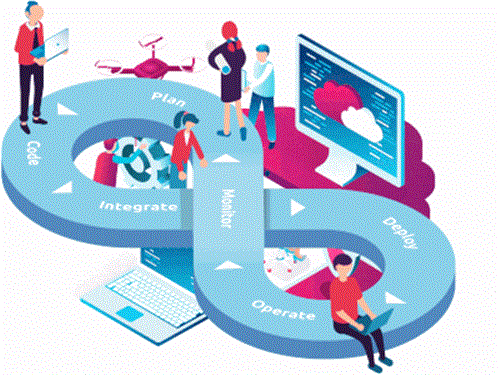

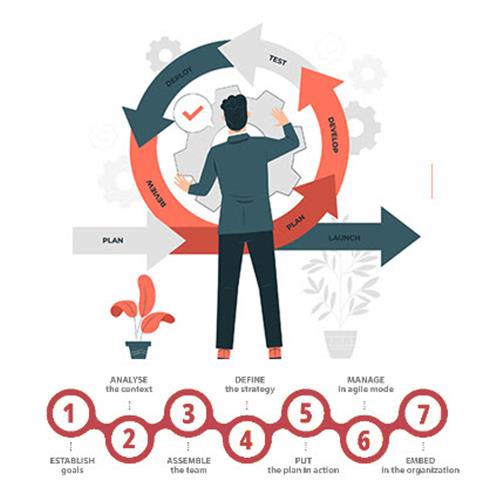




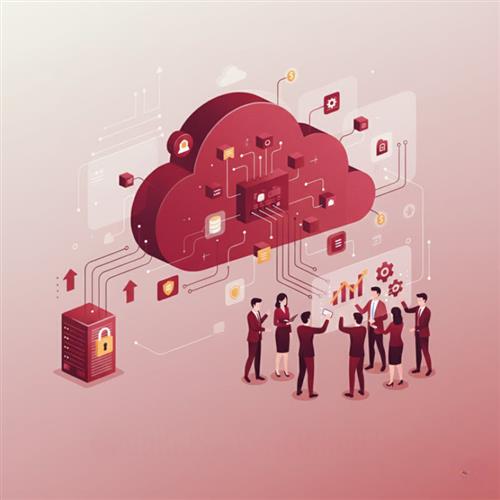
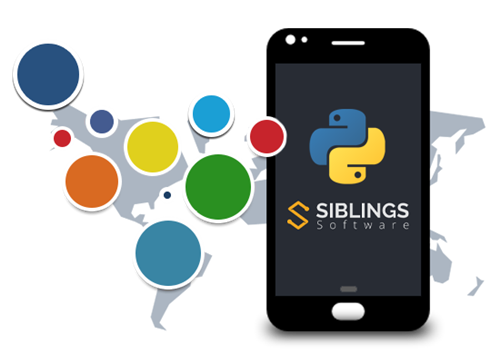


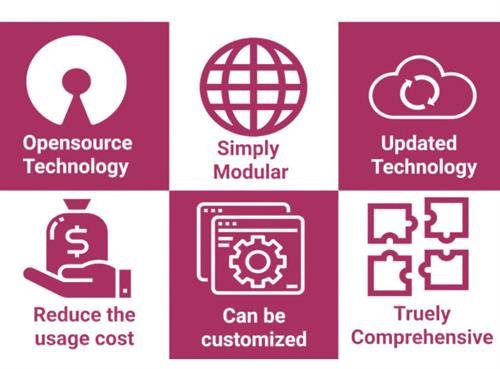
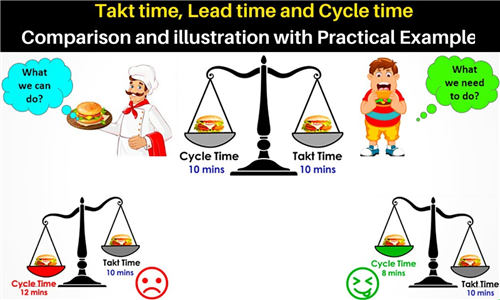










 Link copied!
Link copied!
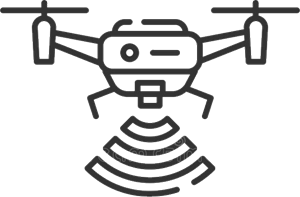 Recently Updated News
Recently Updated News